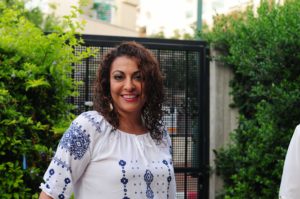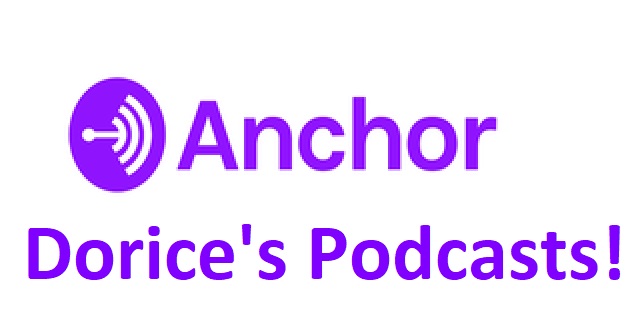 It is the last Shabbat in 2018! WooHoo!! That is a terrific time of the year, right? Time to reflect back and simultaneously move forward. We are beginning the story of Exodus in synagogues all over the world this weekend! The story of us, Bnai Yisrael, the people of Israel. Diaspora’s first experience- going down to Egypt to reunite with the family but ending up in slavery. And look where we are now—today we choose where we want to live, and many Jews choose to live outside of Israel. My life’s journey brought me here, to the United States. Who knew I would end up in Portland, Oregon for more than 30 years?
It is the last Shabbat in 2018! WooHoo!! That is a terrific time of the year, right? Time to reflect back and simultaneously move forward. We are beginning the story of Exodus in synagogues all over the world this weekend! The story of us, Bnai Yisrael, the people of Israel. Diaspora’s first experience- going down to Egypt to reunite with the family but ending up in slavery. And look where we are now—today we choose where we want to live, and many Jews choose to live outside of Israel. My life’s journey brought me here, to the United States. Who knew I would end up in Portland, Oregon for more than 30 years?
I remember when my kids were young, I had a revelation, one of many, it began with a question: Should my husband and I raise them as Israelis (after all, I am one!), or as Jews living outside of the Holy Land? The response was the revelation: I can neither teach them “Israelism,” nor can I transfer “Israelism” to my kids. I can, however, teach them how to be Jewish by instilling Jewish values and gift them the knowledge of Judaism. To accomplish that, my husband and I became members in a local synagogue in our city. It was the first time I noticed that some Jews I only saw once a year…Then came another question: Do you think you can be Jewish ONLY on high Holy Days? This thought has crossed my mind every year for the past thirty years, especially as I held the position of Education Director at a Conservative synagogue in Portland.
For weeks leading up to the High Holy Days, the staff would have conversations about how to greet, welcome and entice people who were perhaps coming for the first time (or the only time) to the synagogue. How can we provide a meaningful experience to them, this one time a year? What do we need to do so they come again? What can we do so they will consider becoming members of our shul?
The answer in my opinion is very simple: spirituality vs knowledge.
Of course, people can be Jewish and not attend synagogues, but before I mention the big word (GOD) or the other big word (RELIGION), I want you to consider if you are a spiritual being. Do you sometimes toy with the idea that there are powers higher than you and I in this universe? Do you believe that these powers lie inside of you? If so, how do you connect with this sense? Is your relationship with a higher power different if you are an Israeli Jew or if you are a Jew living in the diaspora?
In my previous two blog posts, I looked at the relationship of American Jews and Israeli Jews from the framework I provide in my upcoming book, Moments of the Heart. In the first post of December 14, I referred to the “First Chamber”: the relationship that we—each one of us (American and Israeli Jews)—have with Judaism. I suggested that we have to come to terms with what we choose to call and define as Judaism. The second blog post, December 21, continued by exploring the Second Chamber, the deepening of the relationship between the Jewish nation and the diaspora.
Now, in this post, I will explore the relationship between Israeli and American Jews through the lens of the Third Chamber– the relationship of each entity with God. In my book I define this chamber as our relationship with that which is bigger than us. For some of us it is simply God, for others it is the creator, nature, the source, the energy. For me it is simply the all-encompassing God!
I have this image of the treasure box called Judaism. It is a sparkly box (of course!), a bit heavy. Those who open it, see the easiest-to-grab items at the top. Shabbat, Purim, Chanukah, even Passover. But the more we dig, the more treasures we find. Treasures that may be hidden from a cursory viewing only. What I have found over the years is that both groups, American Jews and Israeli Jews, miss out on looking closely into this box.
Many Israeli Jews are disillusioned by the Orthodox mandate in Israel and choose to throw out the Judaism box altogether; others may focus on knowledge and not enough on kavanah, the spiritual intention in their Jewish life.
American Jews, on the other hand, are more spiritual, they are interested in the higher conversation of the existence of God, the purpose of living on this earth and their personal spiritual destiny, but they are not as knowledgeable in Jewish rituals, practice, and thought.
I know this is a big generalization, and what I learned from my work in Jewish education over the past three decades is that each group needs to grow in their relationship with “God”, “Source”, “Energy” (or whatever word they use to refer to the “higher power.”) As well, when a group values knowledge, it inevitably leads to more involvement, more understanding and more sense of belonging. Maybe, then, the term “Jew only on the High Holy Days” will cease to exist!
Lev Personal Moments:
- Do you value Jewish education? Do you have plans to join a class this year and learn something new?
- How do you nourish your spirituality, your essence in regard to a higher power? Do you have conversations about the existence of God? Do you believe that the Jewish people are people of destiny, or only people of shared history?
- Suggest a way you can grow in your spirituality.
- Suggest a way you can grow in your knowledge.
- Suggest something you can do that will put your combined spirituality and knowledge into practice.
Have a blessed day!
Dorice
PS
I am looking forward to teaching my eight-week class elucidating the concepts about my upcoming book, Moments of the Heart—what a pleasure it is for me to explore the concepts of the book with others, at Congregation Neveh Shalom starting on January 8th. It will be super-nourishing for your soul!
Attendance at all classes is not required!
Click here to register on-line or click here to email JoAnn or call the office at 503-246-8831.
And if it’s not the right time for you, I offer you several easy ways to connect with me to find similar nourishment—from my online classes, to my book, to studying with me!

